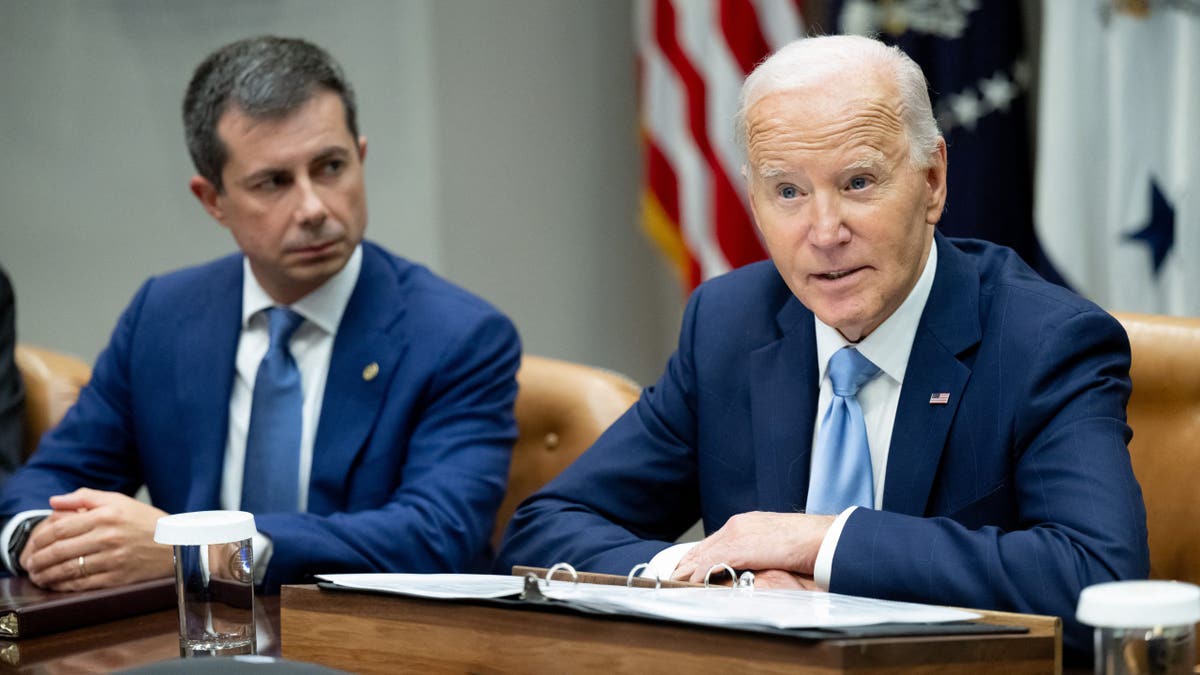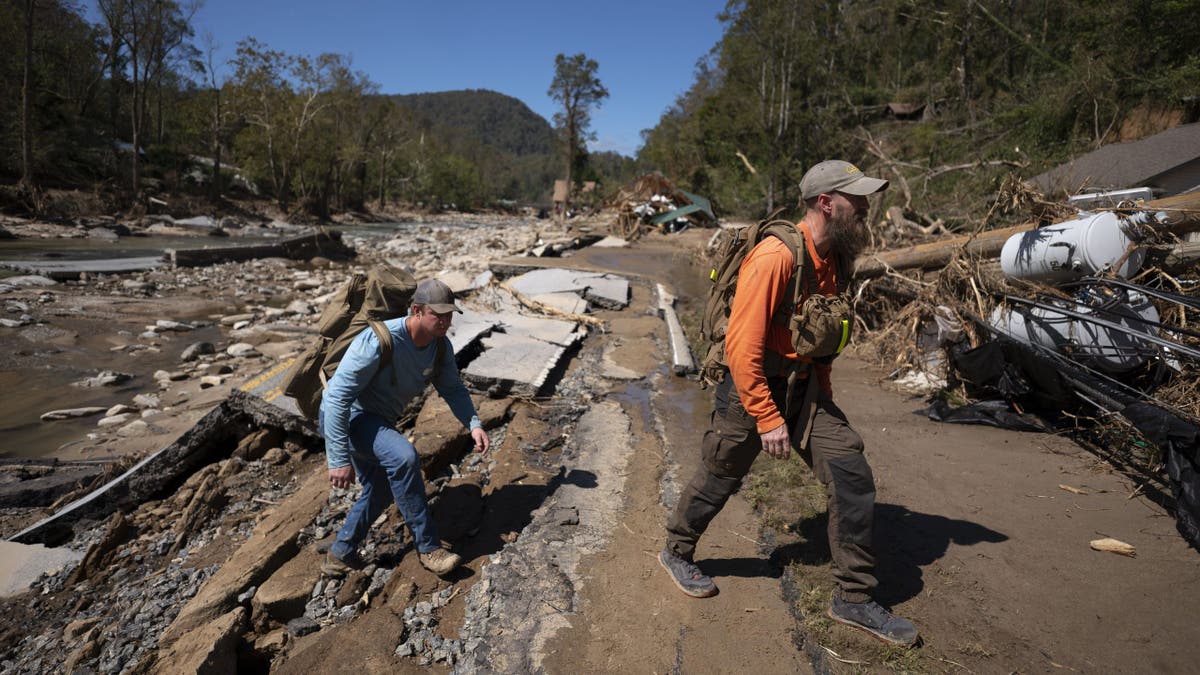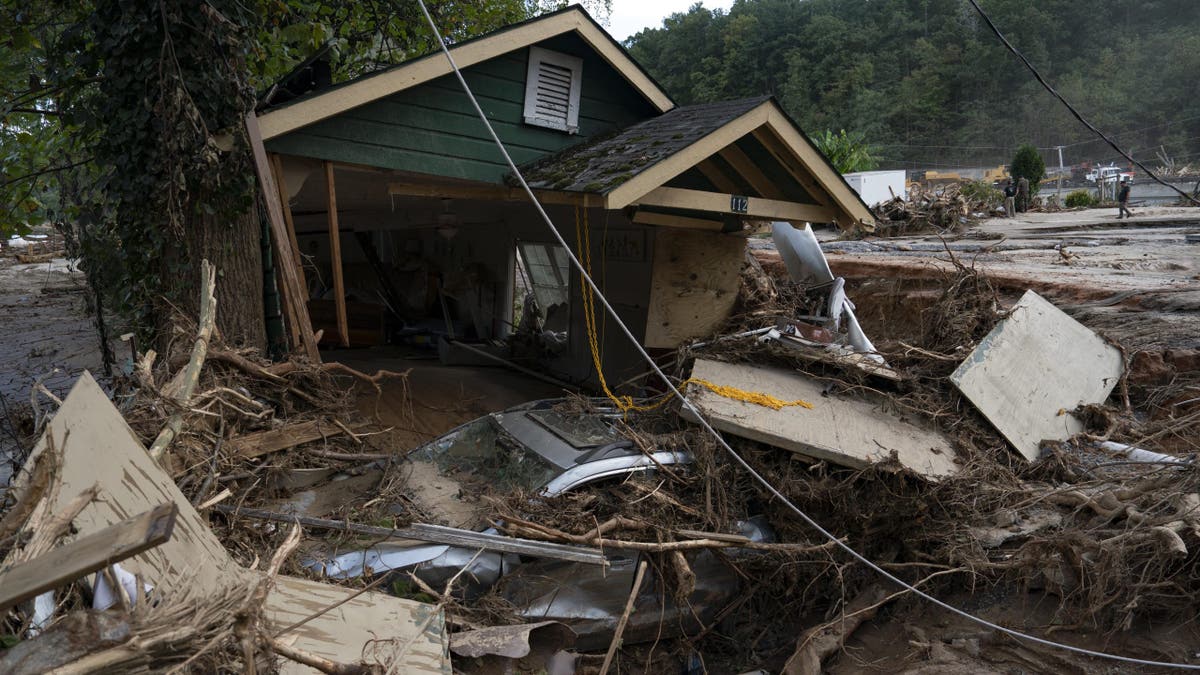The U.S. Department of Transportation (DOT) clarified a message that warned civilian drone pilots not to fly near Hurricane Helene recovery and rescue efforts — or risk penalty, fines or “criminal prosecution” — after facing intense backlash online.
Reached by Fox News Digital, a DOT spokesperson said civilian drone pilots are permitted and are assisting in rescue and recovery efforts, and previous “temporary flight restrictions” have since been lifted.
Some X users — collectively with millions of followers — reacted adversely to a message addressed to drone pilots and with accompanying video from Transportation Secretary Pete Buttigieg shared by the department earlier this week. The message and video argued the restrictions would prohibit civilian volunteers from legally searching for victims or survivors when response time matters most or capturing their own footage of the disaster.
“The USDOT tweet from yesterday was referring to temporary flight restrictions that were in place but were lifted late last night,” a DOT spokesperson told Fox News Digital Thursday, citing the FAA.
TRUMP TARGETS BIDEN, HARRIS OVER FEDERAL RESPONSE TO HURRICANE: ‘INCOMPETENTLY MANAGED’
The spokesperson explained the FAA “is not banning drones from providing Hurricane Helene disaster relief and recovery assistance.”
“At times, local authorities and law enforcement request the Federal Aviation Administration issue a Temporary Flight Restriction (TFR) in order to ensure safety for aircraft or drones operating in certain areas,” the spokesperson said in a statement. “These restrictions occur at the request of local authorities or law enforcement. FAA does not put these into place without requests.”
The spokesperson said such restrictions apply to both manned and unmanned aircraft, or drones.
“With proper authorization, drones (and other aircraft) are permitted to operate within a Temporary Flight Restriction,” the statement continued. “These are only for limited areas identified by law enforcement and local authorities.
“Relief operations, including civilian operations and volunteers, that are coordinated with emergency responders can still access the airspace during these restrictions. Anyone looking to use a drone or other aircraft to assist in Hurricane Helene disaster relief and recovery efforts should coordinate with first responders and law enforcement on scene to ensure they do not disrupt life-saving operations.”

President Biden speaks alongside Transportation Secretary Pete Buttigieg during a briefing on Hurricane Helene response and recovery efforts in the Roosevelt Room of the White House Oct. 1, 2024, in Washington, D.C. (Saul Loeb/AFP via Getty Images)
The clarification comes after the DOT posted to X Wednesday, writing: “Drone pilots: Do not fly your drone near or around rescue and recovery efforts for Hurricane Helene. Interfering with emergency response operations impacts search and rescue operations on the ground.”
In an attached video message, Buttigieg said, “Our goal is to make sure that funding is no obstacle to very quickly getting people the relief that they need and deserve.
“There’s also some safety issues that come up. For example, temporary flight restrictions to make sure that the airspace is clear for any flights or drone activity that might be involved in helping to allow those emergency responders to do their jobs.”
The post pointed to the account for FAADroneZone, the Federal Aviation Administration’s site for drone activity.
“Interfering with emergency response efforts may result in fines or criminal prosecution,” FAADroneZone wrote, reposting Buttigieg’s remarks. “Always check Temporary Flight Restrictions before you fly.”

Search and rescue team members hike along North Carolina Route 9 in the aftermath of Hurricane Helene Oct. 1, 2024, in Bat Cave, N.C. (Sean Rayford/Getty Images)
The posts quickly received heavy criticism on social media.
“The statement from Buttigieg comes as the federal government continues to shuffle its feet to help people in need,” Trending Politics co-owner Collin Rugg wrote to his 1.5 million followers on X.
“Kamala Harris announced that survivors could potentially get $750 in federal assistance,” Rugg added. “Homeland Security Secretary Alejandro Mayorkas says FEMA doesn’t have enough money to make it through hurricane season after spending hundreds of millions of dollars on illegals.”
“U.S. Secretary of Transportation Pete Buttigieg tells Americans to stop using drones to help victims of Hurricane Helene. They’re using drones to FIND SURVIVORS,” podcaster Chad Prather wrote to his 496,800 followers.
“Pete Buttigieg has declared that private drones are BANNED from flying over areas affected by Hurricane Helene. They’re deliberately impeding the ability of volunteers to assist in search and rescue and documenting the extent of the disaster,” conservative journalist Ian Miles Cheong, who has 1.1 million followers on X, added.

The remnants of a home are seen in Lake Lure, N.C., Oct. 2, 2024, after the passage of Hurricane Helene. (Allison Joyce/AFP via Getty Images)
The death toll from Hurricane Helene surpassed 200 people across affected states as of Thursday. Hundreds remain unaccounted for in the aftermath.
Buttigieg visited FEMA headquarters and joined Cabinet members Tuesday to brief President Biden at the White House on the destruction of Hurricane Helene.
CLICK HERE TO GET THE FOX NEWS APP
The FAA, meanwhile, deployed teams “to restore communications to impacted towers and airports, including delivering satellite communications kits to the Asheville Regional Airport in North Carolina and ongoing work at Valdosta Regional Airport in Georgia,” the DOT said Tuesday.
“FAA supported FEMA with two aircraft to conduct flyover assessments and transport emergency personnel and gear, such as satellite communications kits. FAA is also monitoring fuel supplies at several airports in Florida, Georgia, North Carolina and South Carolina that are experiencing reduced fuel delivery due to storm impacts on fuel suppliers.”